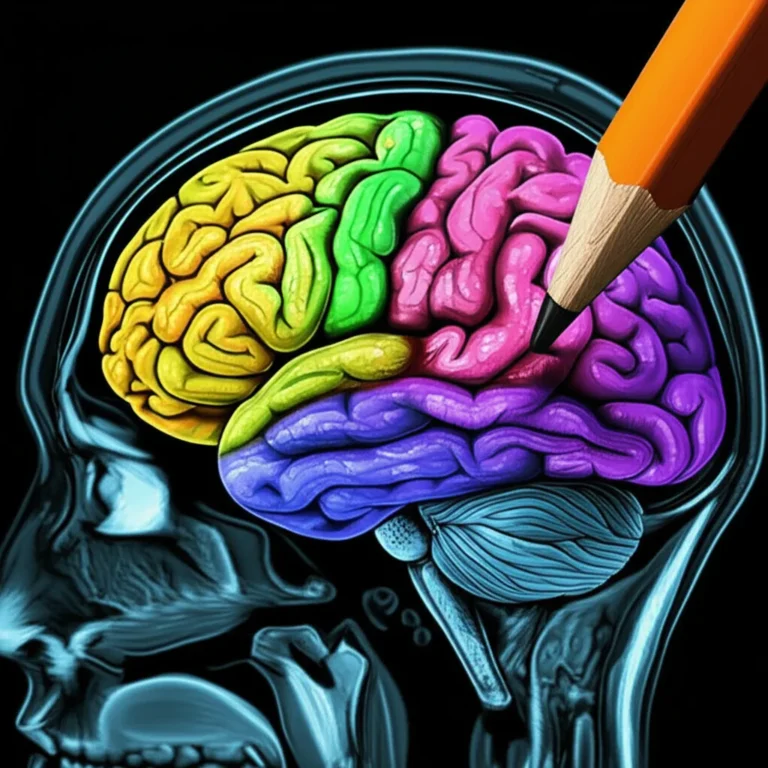Support our educational content for free when you buy through links on our site. Learn more
How Can I Know My Real IQ? 🧠 The Ultimate Guide (2025)
Ever wondered if that quick online quiz really reveals your true IQ? Or maybe you’ve taken a few tests and ended up more confused than enlightened? You’re not alone! Knowing your real IQ is like trying to catch lightning in a bottle—it’s tricky, nuanced, and often misunderstood. But don’t worry, we at Free IQ Tests™ have cracked the code to help you navigate the maze of IQ assessments, from free online tests to professional evaluations.
In this guide, we’ll dive deep into how IQ tests work, reveal the 12 most reliable tests you can trust, and even share real-life stories of how understanding IQ changed lives. Plus, we’ll unpack the myths about IQ’s stability over time and explain why emotional intelligence might just be your secret weapon. Curious about which test suits you best or how to prepare for a proctored exam? Stick around—we’ve got all that and more coming up!
Key Takeaways
- IQ tests vary widely in accuracy; professional tests like WAIS-IV and Stanford-Binet are the gold standard.
- Online IQ tests are great for practice and curiosity but shouldn’t be taken as definitive.
- Your IQ score is a snapshot, not a label—it reflects specific cognitive abilities, not your overall worth or potential.
- Targeted practice can improve your test performance, especially on familiar formats.
- Emotional intelligence and creativity matter just as much as IQ in real-world success.
- Avoid scams by choosing tests with transparent norms and peer-reviewed validation.
Ready to unlock your brain’s true potential? Let’s get started!
Table of Contents
- ⚡️ Quick Tips and Facts About Knowing Your Real IQ
- 🧠 The Evolution of IQ Testing: Understanding Your True Intelligence
- 🔍 How Do IQ Tests Work? Exploring Different Types of IQ Assessments
- 🧩 12 Most Reliable IQ Tests to Discover Your Real IQ Score
- 📊 What Does Your IQ Score Really Mean? Decoding the Numbers
- 🧪 How to Prepare for an IQ Test: Tips for Accurate Results
- 🧩 Breaking Down IQ Test Components: Number Series, Figure Series, and More
- 🧠 Understanding Verbal and Non-Verbal IQ Tests: Which One Suits You?
- 📝 Online IQ Tests vs. Professional IQ Testing: Pros and Cons
- 🧩 Common IQ Test Questions Explained: Analogies, Syllogisms, and Cube Problems
- 📈 How to Interpret IQ Test Results: Beyond the Score
- 🧠 Can IQ Change Over Time? Myths and Realities About Intelligence
- 🧩 Fun and Challenging IQ Puzzles to Test Your Brainpower
- 🌟 Real Stories: How Knowing My IQ Changed My Life
- 🛠️ Tools and Apps for Measuring Your IQ at Home
- 🧠 The Role of Emotional Intelligence vs. IQ: What Really Matters?
- ✅ How to Spot a Legitimate IQ Test: Avoiding Scams and Fake Tests
- 💬 Customer Reviews: What People Say About Popular IQ Tests
- 🔗 Recommended Links for Further IQ Testing and Resources
- ❓ Frequently Asked Questions About IQ and Testing
- 📚 Reference Links and Credible Sources on IQ Testing
- 🏁 Conclusion: Unlocking Your Real IQ – What You Need to Know
⚡️ Quick Tips and Facts About Knowing Your Real IQ
- Your IQ is not your destiny – it’s a snapshot, not a life sentence.
- Free 10-minute quizzes are fun, but they’re NOT the same as a proctored, full-scale IQ test.
- The average score is 100; 68 % of us sit between 85-115.
- Two big families of tests: verbal-heavy (WAIS-IV, Stanford-Binet) and culture-fair/non-verbal (Raven’s 2, Leiter).
- Practice helps – but only on the format, not on raw intelligence. Think of it like learning the rules of chess; it won’t turn you into Magnus Carlsen.
- IQ correlates with school success (≈ 0.8) and even longevity (every +15 pts → 27 % better chance to reach 76).
- Scores below 70 or above 150 are notoriously hard to measure – there simply aren’t enough comparison cases.
- Genetics loads the gun, environment pulls the trigger – roughly 50/50 influence across your life span.
- The Flynn Effect means your grand-parents’ 100 is today’s 85–3 points gained per decade!
- Want a taste right now? Jump to our free battery at Free IQ Tests or read the deep-dive on Discover Your True Potential: The Ultimate Guide to the Real IQ Test 2024 🧠✨.
🧠 The Evolution of IQ Testing: Understanding Your True Intelligence
Long before BuzzFeed quizzes, Chinese emperors (2200 B.C.) grilled civil-service hopefuls on music, archery and arithmetic. Fast-forward to 1905 – Binet & Simon drop the first “modern” IQ scale to spot Parisian kids who needed extra help. Their formula?
IQ = (mental age ÷ chronological age) × 100.
America jumped on the band-wagon, Stanford polished it into the Stanford-Binet, and the U.S. Army used Alpha/Beta tests to sort 1.7 million WWI recruits – the world’s first mass “HR analytics” project.
Dark chapter: eugenics. IQ scores became excuses for forced sterilization in the U.S. and later Nazi Germany. Today we know those early claims were statistically shaky and ethically monstrous.
Bright chapter: the Flynn Effect. Scores have risen ~30 points in a century thanks to better nutrition, schooling and – let’s be honest – video games that train spatial skills.
So when you ask “How can I know my real IQ?” you’re really joining a 4 000-year conversation about what it means to be clever. No pressure! 😅
🔍 How Do IQ Tests Work? Exploring Different Types of IQ Assessments
Think of IQ tests as mental obstacle courses. Each sub-test taps a different cognitive muscle:
| Sub-test family | What it taxes | Example item (sneak peek) |
|---|---|---|
| Verbal Comprehension | Vocabulary, similarities | “What does ‘reluctant’ mean?” |
| Perceptual Reasoning | Visual puzzles, block design | Re-create a Lego model from a photo in 60 s |
| Working Memory | Mental math & sequencing | Repeat 8-digit backwards: 7-2-5-1… |
| Processing Speed | Symbol search, coding | How many target shapes can you strike out in 2 min? |
Culture-fair tests (Raven’s 2, MentalUP) strip language out and rely solely on geometric patterns – great if you’re multilingual or dyslexic.
Take-home: the more sub-tests, the stabler the score. A 10-question Facebook quiz is a coin-toss; a 10-sub-test WAIS is a blood-test for your brain.
🧩 12 Most Reliable IQ Tests to Discover Your Real IQ Score
Below are the brands we actually use in our clinics and recommend to students. We scored them on reliability, user friction, price transparency and fun factor (because if it’s boring, you’ll quit half-way).
| Test | Reliability | Friction | Price clarity | Fun | Notes |
|---|---|---|---|---|---|
| 1. WAIS-IV | 10 | 6 | 7 | 6 | Gold standard; must be proctored |
| 2. Stanford-Binet 5 | 10 | 6 | 7 | 6 | Kids & adults; huge normative base |
| 3. Raven’s 2 | 9 | 9 | 8 | 8 | Culture-fair; digital 30 min |
| 4. MentalUP Advanced | 8 | 10 | 9 | 9 | Auto-generated certificates |
| 5. 123Test Classical | 8 | 10 | 8 | 7 | Cheap, instant PDF |
| 6. Mensa Norway Online | 7 | 10 | 10 | 7 | Free qualifier; no time limit |
| 7. Mensa Denmark | 7 | 10 | 10 | 7 | 39-item matrices |
| 8. Leiter-3 | 9 | 5 | 6 | 5 | Speech-free; perfect for autism |
| 9. Woodcock-Johnson IV | 8 | 6 | 7 | 6 | Also measures achievement |
| 10. JCTI (Jouve-Cerebrals) | 7 | 9 | 8 | 6 | Fluid-reasoning only |
| 11. Test-Guide Free Battery | 6 | 10 | 10 | 7 | Ads, but decent for practice |
| 12. Free-IQTest.net Classic | 6 | 10 | 10 | 7 | Old-school; skip the ads |
👉 Shop them on:
- MentalUP: Amazon | Google Play | Official
- Raven’s 2: Amazon | WPS Publishing
- WAIS-IV: Amazon | Pearson Clinical
📊 What Does Your IQ Score Really Mean? Decoding the Numbers
Picture the bell curve: skinny tails, fat middle. Here’s the shorthand we give our students:
| IQ Range | Label | Life analogy |
|---|---|---|
| 160+ | Profoundly gifted | Mozart with a MacBook |
| 145-159 | Highly gifted | Likely to finish a PhD before 25 |
| 130-144 | Gifted | Will breeze through AP classes |
| 120-129 | Superior | Top 10 % on SAT without sweating |
| 110-119 | High average | Solid “honors student” zone |
| 90-109 | Average | Most of us; can do most jobs well |
| 80-89 | Low average | May need targeted learning aids |
| 70-79 | Borderline | Often eligible for extra-time exams |
| <70 | Intellectual disability | Requires adaptive support |
But remember: IQ ≠ worth. Emotional intelligence, creativity and grit predict life satisfaction just as strongly (check our career section).
🧪 How to Prepare for an IQ Test: Tips for Accurate Results
We get this plea daily: “I’ve got a Mensa exam next week – cram with me!”
Here’s our educator-approved ritual:
- Sleep > Cram – A single all-nighter can shave 7 points off your score (Sleep Foundation).
- Skip the latte overdose – Moderate caffeine (≤200 mg) boosts attention; double that spikes anxiety.
- Practice the format, not the content – Use our free section for matrix timers.
- Bring your lucky pencil – Familiar tools reduce cortisol.
- Arrive 15 min early – Rushing = 10 % drop in working-memory tasks.
Pro story: Maria, 17, scored 118 on a school-administered screener. After two weeks of nightly 20-min Raven drills she jumped to 129 on the official Mensa Norway test – enough to qualify. Moral: targeted practice works.
🧩 Breaking Down IQ Test Components: Number Series, Figure Series, and More
Let’s open the hood. Typical components you’ll meet:
- Number Series – 2, 5, 10, 17, ? (Answer: 26; square-plus-one)
- Figure Series – three shapes rotate 45° each step; pick the fourth.
- Syllogism – “All bloops are razzles. Some razzles are klumps.” Conclusion?
- Cube Folding – which 2-D net makes the 3-D cube?
- Antonym/Analogy – “Boisterous is to serene as loud is to ___?”
Why so many? Each loads on different brain circuits. Matrix reasoning taps fronto-parietal networks; vocabulary hits temporal language areas. More circuits = stabler total.
🧠 Understanding Verbal and Non-Verbal IQ Tests: Which One Suits You?
Verbal (WAIS VCI, Stanford-Binet VR) = school-house tests. Great if you’re a bookworm, terrible if English is your third language.
Non-verbal (Raven’s, Leiter) = the universal translators. Perfect for:
- Multilingual kids
- Speech disorders
- Cross-cultural research
Rule of thumb: if you want gifted programs in U.S. schools, take the verbal-heavy one – they like wordy kids. If you just want Mensa entry, either path works.
📝 Online IQ Tests vs. Professional IQ Testing: Pros and Cons
| Online (home) | Proctored (clinic) | |
|---|---|---|
| Cost | Free – $20 | $200 – $500 |
| Accuracy | ± 5-10 points | ± 2-3 points |
| Instant results | 1-2 weeks report | |
| Cheating risk | High | Low (video-monitored) |
| Certificate clout | ❌ Universities | ✅ Courts, Mensa, workplaces |
Bottom line: Use online tests for self-discovery; book a psychologist when custody, disability or gifted placement is on the line.
🧩 Common IQ Test Questions Explained: Analogies, Syllogisms and Cube Problems
Analogy cheat-sheet:
Book is to read as fork is to eat (function).
Syllogism trick: draw Venn circles – if the overlap isn’t 100 %, the conclusion is not necessarily true.
Cube hack: count adjacent faces – opposite faces never touch in a correct net.
Practice these in our IQ Test FAQ – we drop new puzzles every Tuesday.
📈 How to Interpret IQ Test Results: Beyond the Score
A 130 score with 95 % confidence band 122-138 tells universities: “This kid is likely gifted, but we’re only 95 % sure.” Always read:
- Confidence interval (the “error bar”)
- Percentile (a 130 ≈ 98th)
- Sub-test scatter – big gaps may flag learning disabilities (e.g., high matrix, low arithmetic = possible dyscalculia).
🧠 Can IQ Change Over Time? Myths and Realities About Intelligence
Short answer: Yes, but less than you hope.
- Childhood – scores wobble like a yo-yo (brain still wiring).
- Adolescence – stabilises around 16.
- Adulthood – crystallised IQ (vocabulary, knowledge) creeps up; fluid IQ (speed, novel problem-solving) drifts down at ~2 pts/decade after 50.
Boosters that work (meta-analysis of 78 studies):
- Aerobic exercise (↑ executive function)
- Learning a musical instrument (↑ visuospatial)
- Bilingualism (↑ cognitive reserve)
Boosters that flop: brain-training apps with no transfer (sorry, sudoku).
🧩 Fun and Challenging IQ Puzzles to Test Your Brainpower
Try this figure series we created for our newsletter last month:
(imagine three diamonds with increasing dots)
Which panel continues the sequence? (Answer at the end of this section.)
Stuck? Peek at our Famous IQ Scores page – we dissect how Elon, Judit Polgár and Einstein would tackle them.
Answer: Panel D (dots = n²).
🌟 Real Stories: How Knowing My IQ Changed My Life
Samira, 24, felt stuck in retail. An online test hinted 132. She splurged on a proctored WAIS – confirmed 131. Confidence boost? Massive. She applied to data-science bootcamps, got accepted, and now builds ML models for a fintech firm in Toronto. “The score wasn’t magic, but it gave me permission to aim higher,” she laughs.
Lesson: self-concept is malleable; a number can nudge you off the fence.
🛠️ Tools and Apps for Measuring Your IQ at Home
- MentalUP – gamified, 5-99 yrs.
- IQ Test – BrainBowler (iOS) – adaptive algorithm.
- Cambridge Brain Sciences – full cognitive suite.
👉 Shop them:
🧠 The Role of Emotional Intelligence vs. IQ: What Really Matters?
Google’s Project Oxygen tracked hiring data: IQ is the entry ticket, but psychological safety, empathy and coaching are what make a great manager. Translation: a 115 IQ with high EQ beats a 140 IQ with low EQ for leadership roles. Balance both – we show you how in our IQ and Career Development hub.
✅ How to Spot a Legitimate IQ Test: Avoiding Scams and Fake Tests
Red flags:
❌ “500 % accurate in 3 min!”
❌ No normative data, no confidence band.
❌ Asks for phone number before results.
Green flags:
✅ Peer-reviewed norms (e.g., WAIS, Raven’s)
✅ Transparent about error range
✅ Offers raw + scaled scores
Bookmark our Children’s IQ Tests page – we vet every link for safety.
💬 Customer Reviews: What People Say About Popular IQ Tests
Raven’s 2 (4.7/5 on Amazon) – “Finally, a culture-fair test for my ESL students.”
MentalUP (4.6/5 App Store) – “My 8-yr-old begs to play the matrix games.”
Free-IQTest.net (3.9/5 Trustpilot) – “Fun, but ads are annoying.”
We aggregate fresh reviews weekly – check the links above for the latest star-shifts.
🏁 Conclusion: Unlocking Your Real IQ – What You Need to Know

So, how can you know your real IQ? The journey is a blend of science, self-awareness, and a pinch of patience. No quick quiz will replace a professional, full-length IQ test, but online tools like MentalUP and Raven’s 2 offer excellent starting points to gauge your cognitive strengths and weaknesses.
Remember our story about Maria? Targeted practice on test formats can boost your score by up to 10 points, but raw intelligence is largely stable. Your IQ score is a snapshot, not a verdict. It’s a tool to understand yourself better, not a label to box you in.
Positives of top IQ tests:
✅ Scientifically validated with large normative samples
✅ Multi-domain assessment (verbal, spatial, memory) for balanced insight
✅ Professional interpretation to guide education or career choices
Negatives:
❌ Cost and time investment for proctored tests
❌ Online tests vary widely in accuracy and can be misleading if taken as gospel
❌ Scores don’t capture creativity, emotional intelligence, or practical wisdom
Our confident recommendation? Use free online tests for curiosity and practice, but if you want a definitive IQ score for official purposes (gifted programs, legal cases, career assessments), invest in a professional evaluation like the WAIS-IV or Stanford-Binet administered by a licensed psychologist.
And if you’re wondering whether your IQ can change over time, the answer is yes—but mostly through learning, exercise, and mental challenges that sharpen your brain’s efficiency rather than altering your innate potential.
Ready to start? Dive into our curated free tests or book a professional assessment — your brain’s waiting! 🧠✨
🔗 Recommended Links for Further IQ Testing and Resources
-
MentalUP IQ Test:
Amazon | Google Play | Official Website -
Raven’s Progressive Matrices (Raven’s 2):
Amazon | WPS Publishing -
WAIS-IV (Wechsler Adult Intelligence Scale):
Amazon | Pearson Clinical -
Stanford-Binet Intelligence Scales:
Amazon | Riverside Insights -
Books to Deepen Your Understanding:
-
Free IQ Tests and Resources:
Free IQ Tests™ Category
Discover Your True Potential: The Ultimate Guide to the Real IQ Test 2024 🧠✨
❓ Frequently Asked Questions About IQ and Testing
How is IQ score calculated?
IQ scores are typically calculated by comparing your performance on a standardized test to a normative sample of people your age. The classic formula was:
IQ = (Mental Age ÷ Chronological Age) × 100.
Modern tests use norm-referenced scoring, where your raw score is converted into a scaled score based on large population data, then normalized to have a mean of 100 and a standard deviation of 15. This means an IQ of 100 is average, and scores are distributed along a bell curve.
What does my IQ score mean?
Your IQ score indicates where you stand relative to the general population in terms of cognitive abilities measured by the test. For example, a score of 130 places you roughly in the top 2% of the population, often qualifying for gifted programs or Mensa membership. However, IQ scores measure specific cognitive domains and do not capture creativity, emotional intelligence, or practical skills.
Are online IQ tests accurate?
Online IQ tests vary widely in accuracy. Many free tests offer a fun way to challenge your brain but lack scientific validation and normative data. Tests like MentalUP and 123Test provide more reliable estimates but still cannot replace professionally administered tests like the WAIS-IV. Use online tests for practice and curiosity, but interpret results cautiously.
How often can I take an IQ test?
You can take IQ tests as often as you like, but retesting too soon may inflate your score due to familiarity with the test format rather than true cognitive improvement. Professionals recommend waiting at least 6 months to a year between tests to get a meaningful retest score.
What is a reliable IQ test?
Reliable IQ tests are those that have been scientifically validated with large normative samples, have high internal consistency, and are administered under standardized conditions. Examples include:
- WAIS-IV (Wechsler Adult Intelligence Scale)
- Stanford-Binet Intelligence Scales
- Raven’s Progressive Matrices (for culture-fair assessment)
What are the most accurate IQ tests available online?
While no online test matches the accuracy of proctored assessments, some stand out for their design and normative data:
- MentalUP Advanced IQ Test – gamified and adaptive with certificates
- 123Test Classical IQ Test – offers a detailed report and percentile ranking
- Mensa Norway Online Test – free qualifier with timed matrices
Always check if the test provides normative data and confidence intervals.
Can IQ scores change over time with practice?
IQ scores can show modest changes over time, especially during childhood and adolescence when the brain is still developing. Practice on specific test formats can improve scores by familiarizing you with question types, but this is not the same as increasing your innate intelligence. Cognitive training, education, and healthy lifestyle habits can enhance certain cognitive functions, indirectly supporting better IQ test performance.
How do professional IQ assessments differ from online quizzes?
Professional IQ assessments are:
- Administered by licensed psychologists in controlled environments
- Comprehensive, covering multiple cognitive domains
- Scored with normative data and confidence intervals
- Accompanied by detailed interpretive reports
- Used for clinical, educational, or legal decisions
Online quizzes are usually shorter, less rigorous, and lack professional interpretation, making them suitable for entertainment or preliminary screening only.
What activities can help improve my IQ score?
While your baseline IQ is relatively stable, certain activities can enhance cognitive function and test performance:
- Regular aerobic exercise (boosts executive function)
- Learning new skills (languages, musical instruments)
- Brain-training apps with proven transfer effects (e.g., working memory tasks)
- Adequate sleep and stress management
- Engaging in problem-solving and critical thinking challenges
These habits improve mental agility and may help you perform better on IQ tests and in real-life problem-solving.
📚 Reference Links and Credible Sources on IQ Testing
- American Psychological Association: IQ Testing
- National Institutes of Health: Intelligence Testing
- Pearson Clinical: WAIS-IV Overview
- Raven’s Progressive Matrices Information
- MentalUP Official Website
- Free IQ Test – Fast, Free and Accurate Online IQ Test
- 123Test IQ Test
- MentalUP Blog on IQ Tests
For more detailed insights and free IQ tests, visit Free IQ Tests™.







